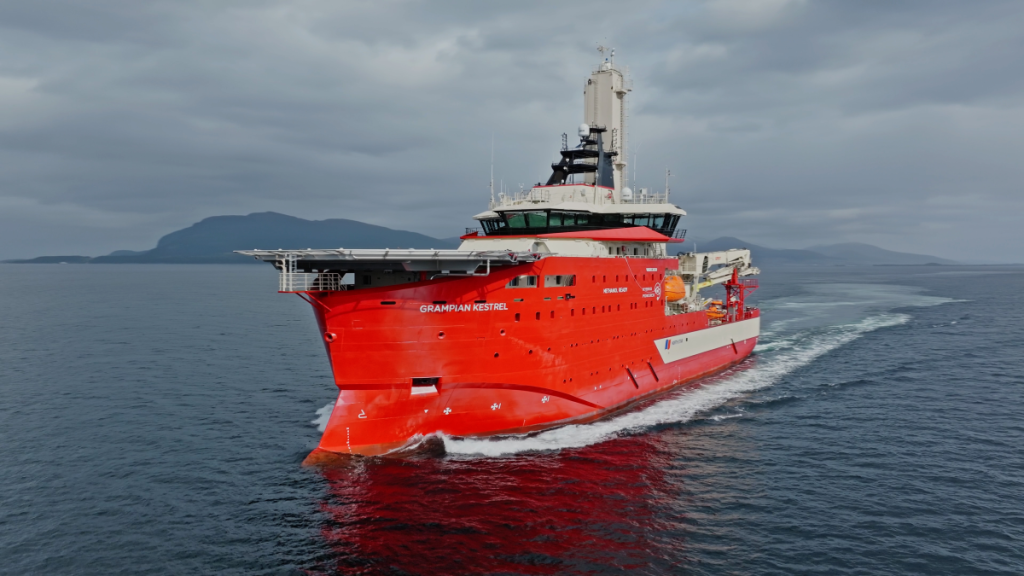Two new vessels built to support offshore wind farm commissioning and maintenance are the first in the world to receive official class notations for cyber resilience. North Star’s Grampian Kestrel and Purus’ Purus Chinook have met mandatory cybersecurity requirements set for new ships starting July 1, 2024.
These Commission and Service Operation Vessels (CSOVs) were constructed by Vard, a subsidiary of the Fincantieri Group, following orders made in 2023. Both vessels earned class notations from Lloyd’s Register confirming they comply with new cyber resilience rules. These rules ensure that ships can withstand cyberattacks, maintain operations while under threat, and recover quickly after an attack.
The cyber security standards are aligned with the unified requirements UR E26 and E27 issued by the International Association of Class Societies (IACS). These rules became mandatory for all new ship contracts after July 2024 and represent a major advancement in protecting the growing number of digital systems used in shipping.
North Star emphasized that digital resilience is as important as operational reliability in modern vessels. Grampian Kestrel was designed with cybersecurity integrated from the start, rather than added later. The ship’s construction involved close cooperation between North Star, Vard, and Lloyd’s Register to ensure cybersecurity protections cover both crew safety and operational integrity.
Lloyd’s Register Technical Directorate points out that this is the first successful application of its cyber resilience rules. The increasing digitalization of the maritime sector makes strong cyber maturity a necessity to safeguard ships and offshore operations. Both Vard and North Star recognized this need early and set high ambitions to protect their vessels from evolving cyber threats.
The maritime industry is currently undergoing a significant transformation as digital connectivity expands on ships. Cyber resilience class notations establish baseline requirements and best practices to defend maritime operations against evolving cyber threats.
A large part of the electronic systems onboard these vessels come from Vard Electro’s SeaQ portfolio. Vard Electro was responsible for fully integrating and testing the cybersecurity of all onboard systems. This ensured the ships meet the latest regulatory and classification standards for cyber resilience.
Shipboard systems are becoming more complex and digital, increasing the demands on system integrators. SeaQ technology is built with cyber-resilient solutions from the ground up, meeting these rising challenges.
As vessels become more interconnected, linking different systems creates vulnerabilities. Every connection must be carefully designed to prevent unauthorized access, minimize attack surfaces, and protect the integrity of critical operations.















